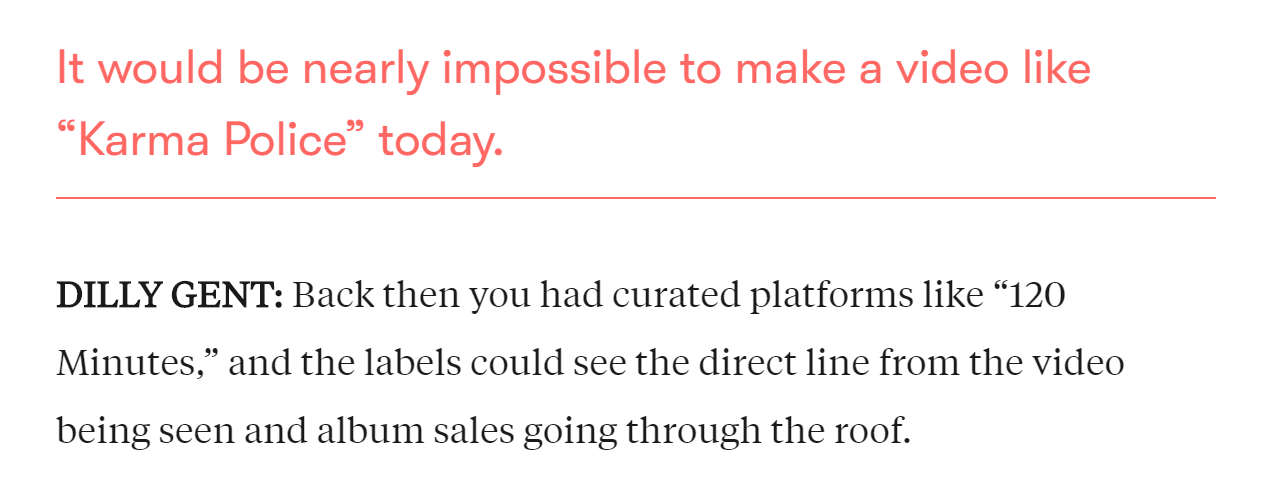These things are related, maybe:
Apple Music is set to surpass Spotify in US subscribers.
I view these as tiny (miniscule) glimmers of almost-good news for musicians, premised on the contention that tech has been very very bad for musicians this century, where musicians are defined as a class of professional laborers whose work is to compose original material and/or to perform live and on recordings, and bad is defined as a state in which music making by artists with established audiences can’t sustain their livelihood.
If LPFM is growing in popularity (a big if, since there’s not much evidence of there being any actual listeners) it would suggest that listeners are feeling a lack of shared experience and human interaction in algorithmic music programming and on-demand streaming. Shared experience is one of those things musicians trade in.
This article/polemic makes an argument for what’s wrong with Spotify. The same argument would apply to Apple Music, except for one difference: Apple’s main business is selling the devices through which one listens to the music. The recording industry itself was born out of phonograph manufacturers partnering with artists to sell Victrolas, not to sell records.
I’ve been observing in the last decade how the most effective way to have a career in the music business is not to make music. It’s far more lucrative to sell services to musicians, as with Tunecore or Distrokid or Reverb or renting out practice spaces, or to sell instruments, effects pedals or recording software, or as a developer or marketer or whatever at a service that essentially gives music away to listeners (i.e. Spotify) — than to actually make music.
Obviously tons has been written about this and I don’t have much to add, other than to observe that as Apple increases market share of streaming I would argue it begins to assume some moral responsibility for helping to solve this problem. As Victrola engaged Enrico Caruso in the 20th Century, Apple should sponsor and develop artists, not just take their cut and assume “they were gonna do it anyway, even if it doesn’t pay.”
Just consider:
Could companies like Apple pick up where labels left off? I think they can afford it.
Update: this article goes farther to answer that question.

